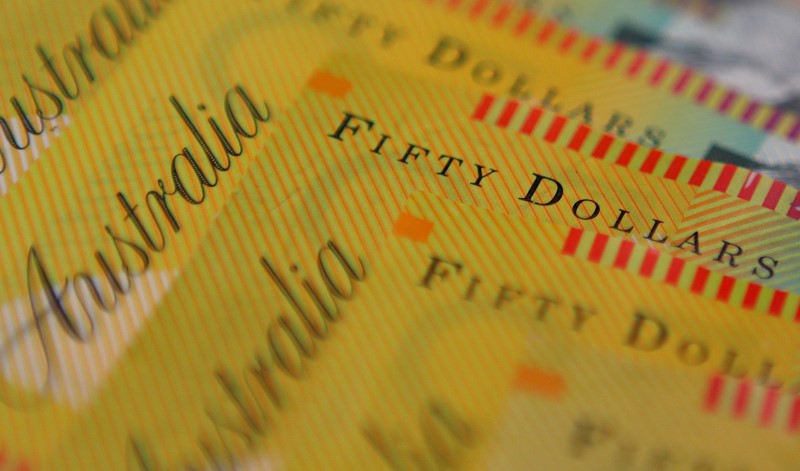LONDON (Reuters) - The Aussie dollar takes a thumping, soybean prices swing and German carmaker shares are stuck in reverse.
Financial markets have been roiled by fears of an all-out trade war between the United States and China, prompting investors to dump assets at risk from rising tariffs and seek safety in havens such as Japan's yen and U.S. Treasury bonds.
U.S. President Donald Trump's promised this week to slap tariffs on $200 billion (£151.8 billion) of Chinese goods, drawing swift threats of retaliation from China.
Below are some of the currencies, stocks and commodities seen most vulnerable to an escalating trade conflict:
GRAPHIC: Trade war fears dent global growth bellwethers png - https://tmsnrt.rs/2MFsHzN
CURRENCIES
Countries with open economies reliant on global trade are most at risk when disputes over international commerce hit.
The Australian dollar
This week, the Aussie
Another candidate is Sweden's crown
"Currencies which are heavily exposed to global growth are going to feel the pressure from any escalation in the trade dispute," said James Binny, global head of currency at State Street Global Advisors based in London.
Asian currencies such as the Korean won
Graphic: Windows to the world - https://reut.rs/2K2NCva
EQUITIES
Bank of America (NYSE:BAC) Merrill Lynch's European fund manager survey in June found a record drop in allocations to auto stocks, indicating that investors are jittery about the sector due to Trump's threat of imposing U.S. tariffs on German carmakers.
European automakers send around $50 billion worth of cars to the United States each year. BMW is the most exposed with up to one fifth of its global sales heading to the U.S. market.
Retaliatory Chinese tariffs on U.S. cars would also hurt European firms as many export to China from their U.S. plants.
As a result, shares in Volkswagen (DE:VOWG_p), BMW (DE:BMWG) and Daimler (DE:DAIGn) have fallen sharply, taking Europe's autos index (SXAP) to a seven-month low.
GRAPHIC: Escalating trade war hits Europe's autos stocks - https://reut.rs/2JYj0KW
The aircraft industry, including Boeing (N:BA) and Airbus (PA:AIR), is another barometer as it relies heavily on an open global supply chain.
Boeing is the single largest U.S. exporter to China, and its shares, along with those of its European counterpart, have fluctuated as trade tensions have risen.
GRAPHIC: Planemakers and trade - https://reut.rs/2LYMHfu
Steel and aluminium are regular targets in international trade disputes. U.S. tariffs on imported steel have hit shares in European steelmaking exporters such as Thyssenkrupp (DE:TKAG), Salzgitter (DE:SZGG) and Voestalpine (VI:VOES).
Europe-based manufacturers that import steel for U.S. factories may also become entangled in the conflict.
There could be some winners, if European manufacturers such as ABB and Siemens (DE:SIEGn) win market share in China at the expense of U.S. rivals such as Honeywell.
But higher trade barriers are likely to hurt most economies, leaving even the winners with a smaller market to work with.
COMMODITIES
China buys about a third of its soybeans from the United States so Beijing's move to slap 25 percent duties on U.S. soybean imports has made the commodity a key battlefield.
It will raise the cost of soymeal, which is used in China to feed pigs and poultry. China's most active soymeal futures
Soybean prices tend to be affected more by weather than economic factors, but tit-for-tat tariffs might shift trade flows. U.S. CBOT soy futures
Finally, prices for copper

graphic: China soybean futures, CBOT futures - https://reut.rs/2MDa3IX